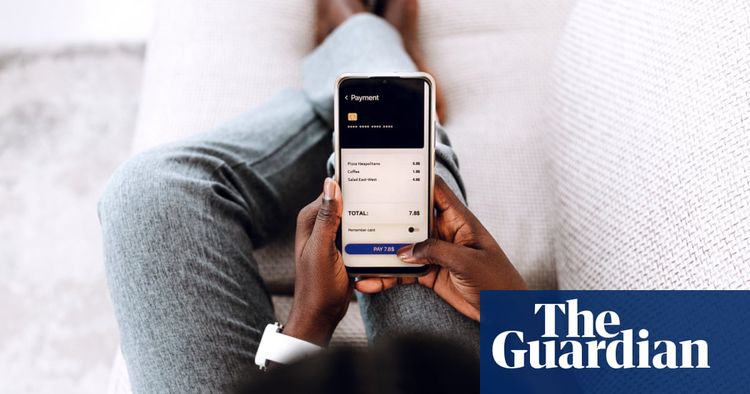Curbing sales season shopping urges: figure out what you actually need and do that instead

When I think about end-of-year sales, I still picture a chaotic crowd of people waiting outside a department store. However, with the use of targeted emails and clickable ads, shopping during sales no longer requires pushing strangers out of the way just to find the perfect dress in your size. Or maybe that only happened in movies?
However, even though online shopping offers convenience, it has its downsides. The never-ending end-of-season sales make it hard to resist buying more, and marketers are using more aggressive tactics to convince us to purchase their products. This has made shopping a difficult battle. Sadly, the environment is also suffering as nearly 66% of the clothes we purchase are ending up in landfills and online shopping is creating seven times more wasteful packaging compared to buying in physical stores. It is evident that we need to reevaluate our shopping habits to make a positive impact on the environment.
According to Chris Cheers, a psychologist and writer, the marketing strategies, advertisements, and the actual transaction process are all aimed at taking advantage of your brain's preference for immediate pleasure over enduring and valuable actions. They create a feeling of shortage and exigency, leading you to believe that if you do not make an immediate purchase, you will lose the opportunity to buy a luxurious shirt, stylish loafers, or trendy shorts.
If you're shopping online and there's a sale happening, the website might show you a timer indicating how much time is left until the sale is over. If you exit the site without completing your purchase, you might receive an email soon after reminding you of the item you left behind. Alternatively, you might come across an advertisement some time later while browsing the internet, informing you that the item you were interested in has been discounted even more.
All of this is worsened by the fact that our brains are programmed to safeguard us by attempting to anticipate the future. According to Cheers, "If you refrain from buying the item, you could be losing out, and your brain is uneasy with the uncertainty." The quickest method to alleviate this worry is to purchase the item, causing "the urge to buy to become so intense that we neglect to consider whether the purchase actually holds significance for us."
As we reach the end of yet another year, we often find ourselves feeling exhausted and vulnerable. However, Cheers offers various techniques that can help override our inherent tendencies.
Why Not Ask 'Why' Instead Of 'If'?
Begin by avoiding the question of necessity for a product and instead question your motivation for purchasing it.
Enquiring about the reason can be beneficial as it prompts individuals to think about the purpose and significance of their transaction. According to Cheers, we may buy an item to feel happy, fulfill a desire, or reward ourselves, which are all valid reasons. However, questioning our motives for the purchase can also reveal the emotional urges that influence our buying decisions.
When you make a purchase due to sadness, anger, or stress, it could be a method to escape those feelings. However, Cheers proposes pausing to tune in to your body and determine what you truly require.
Perhaps the solution is to say 'I'm experiencing a lot of stress, I should take a walk or jog'. Alternatively, 'I'm feeling quite down, it'd be helpful to chat with a friend'. Otherwise, 'I'm feeling quite enraged and it'd be best to have a conversation with this individual who has upset me'.
It is possible that your response is negative or uncertain about the necessity of purchasing that item.
If you've been finding things hard lately or are feeling drained from too much social interaction, it's important to understand that your brain is constantly on the lookout for ways to improve your mood. One thing that can provide instant gratification, a sense of control, and anticipation is purchasing items, which makes online shopping a valuable tool for boosting our mood.
However, due to the arrangement of social media and our mobile devices, browsing for items online may result in recurring patterns of browsing without any purpose. Cheers advises that it's crucial to be mindful that aimlessly scrolling doesn't do any good to your emotions, it simply distracts you from experiencing what you're actually feeling.
Although it is acceptable to feel numb occasionally, especially if you are exhausted and simply need to make it through the day, it is not a constructive approach to managing stressful situations for an extended period. Cheers advises that you monitor how often you are experiencing this sensation, as excessive numbness means that you are not making an effort to identify the steps required to improve your circumstances.
Consider Other Options
As human beings, we often become fixated on instant satisfaction, which leads us to concentrate on the possible consequences of not purchasing the item that is currently in front of us. Shopping triggers this impulse within us.
According to Cheers, the things we buy that actually make our lives better tend to be pricier and require saving up over a longer period of time. It's not a big deal if we skip buying a new swimsuit because the reward of a future beach vacation makes it well worth the wait.
Although it may be tempting to simply aim for having enough in the present moment, Cheers recommends looking beyond that and focusing on something greater if you truly want to bring about significant transformation in your life. This might mean setting aside the pursuit of instant gratification and instead exploring other potential paths that could lead to greater opportunities and fulfillment in the future.











































